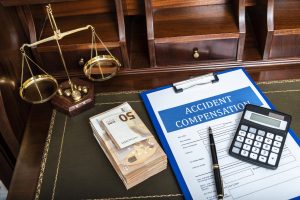Understanding the state's comparative negligence rule is crucial if you’ve been involved in a car accident in Florida. To navigate this area of law effectively and ensure you receive fair compensation, speak with a car accident lawyer in Gainesville. This guide will clarify how comparative negligence works and its impact on your car accident claim.
What is Comparative Negligence?
Florida’s comparative negligence rule is a legal principle determining how fault is shared among parties involved in an accident. Here’s a basic overview of how it functions:
- Determining Fault: In an accident, the fault is evaluated to see how each party contributed to the incident. This involves assessing the actions of both drivers and any other relevant factors.
- Percentage of Fault: Each party involved in the crash is assigned a percentage of fault based on their contribution to the accident. For instance, if one driver was speeding and the other was texting, both factors are considered.
- Impact on Compensation: Your damages are adjusted based on your percentage of fault. For example, if your total damages amount to $10,000 and you are found to be 30% at fault, you would only recover $7,000. This reduction reflects your share of responsibility for the accident.
How Comparative Negligence Affects Your Claim
Understanding how comparative negligence affects your car accident claim is essential for several reasons:
- Reduction in Damages: The percentage of fault assigned to you will reduce the total amount you can recover. If you are found to be partially at fault, your compensation will be less than if you were not at fault.
- Insurance Settlements: Insurance companies use comparative negligence to determine how much they will pay. If they find you partially responsible, they will reduce their payout accordingly, which can impact the settlement you receive.
- Legal Strategy: Comparative negligence influences the legal approach to your case. Your lawyer will need to gather the strongest evidence to prove that the other party was primarily at fault to maximize your compensation.
Key Factors in Comparative Negligence Cases
Several factors play a role in how comparative negligence is applied:
- Evidence of Fault: Collecting comprehensive evidence is crucial. This includes police reports, witness statements, and photos of the accident scene. Such evidence helps establish the extent of each party’s fault.
- Degree of Negligence: The severity of each party’s actions affects how fault is distributed. For example, reckless driving is typically considered more serious than minor infractions.
- Jurisdictional Differences: While Florida uses comparative negligence, other states might have different rules. Understanding these state-specific regulations is important for navigating your claim effectively.
Practical Tips for Handling Comparative Negligence
To effectively manage a car accident claim under Florida’s comparative negligence rule, follow these practical tips:
- Document Everything: From the moment of the accident, gather as much evidence as possible. Take photos of the scene, get eyewitnesses' contact information, and always obtain a copy of the police report. Detailed documentation strengthens your case by providing a clear picture of the incident.
- Seek Medical Attention: Even if you feel your injuries are insignificant, get a medical evaluation. Some injuries directly after an accident may not immediately show themselves but can have long-term effects. Prompt medical care also supports your claim by bridging a link between the accident and your injuries.
- Consult a Lawyer: Speaking with a car accident attorney can provide clarity on how comparative negligence will impact your case. They can assist with gathering evidence, negotiating with insurance companies, and representing your interests in court if needed. A lawyer’s expertise ensures that you understand your rights and options throughout the process.
Understanding Florida’s Comparative Negligence Rule: Final Words
Understanding Florida’s comparative negligence rule is essential when dealing with a car accident claim. This rule can significantly affect the amount of compensation you receive by adjusting damages according to the percentage of fault. Thoroughly documenting the accident, obtaining medical care, and consulting a car accident lawyer in Gainesville can help you manage the claims process more efficiently and aim for a fair resolution.






















